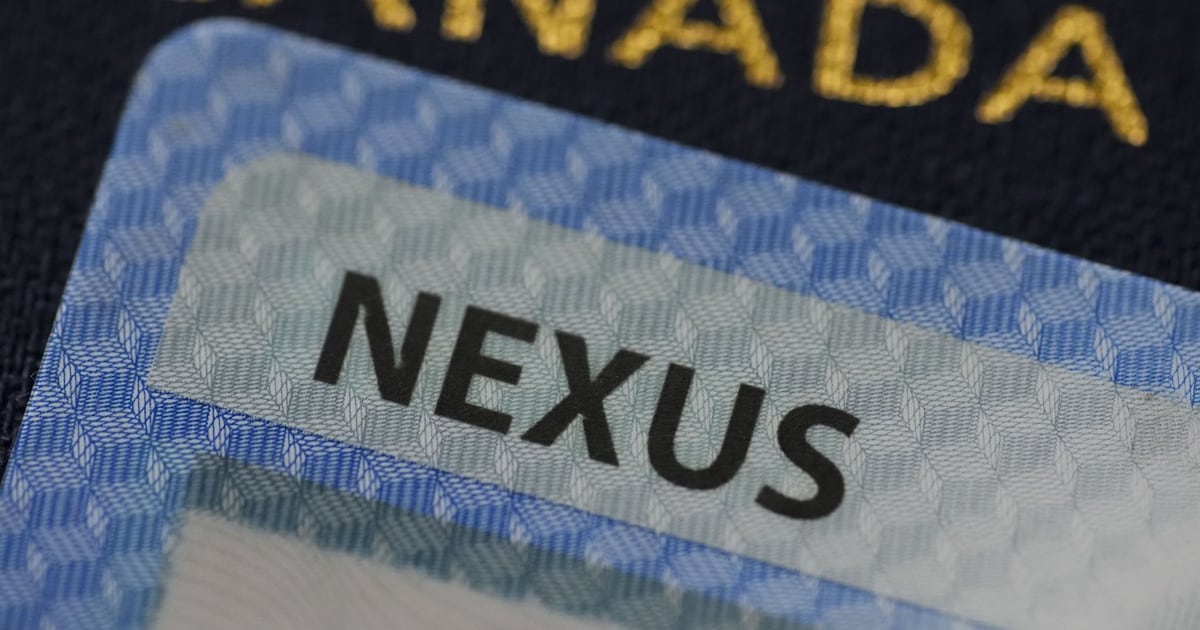Immigration lawyers are sounding off alarms over Canada’s decision to strong-arm people into choosing either male or female when applying for, or renewing their Nexus travel cards, raising potential constitutional challenges.
The decision means non-binary or transgender Canadians crossing the border into the U.S. can no longer choose the X gender marker.
This move comes on the heels of U.S. President Donald Trump’s executive order, which states that the U.S. government will only recognize the male and female sex, terminating any U.S. passports and identity documents issued with an X gender marker.
But according to Luke Reimer, a spokesperson for the Canada Border Services Agency (CBSA), Nexus card holders who had their card issued before the executive order took effect will not be impacted and their membership will remain valid without any change.
“New applicants and existing members renewing their membership are able to apply using a passport with the ‘X’ gender identifier, however they will be required to select ‘male’ or ‘female’ for the purposes of their NEXUS membership,” Reimer said in a statement to CTVNews.ca.
Joyce Kang from Battista Migration Law Group, based out of Toronto, calls the move “cowardly.”
“It’s dictating the complete erasure of non-binary identities from a Canadian legal perspective, and it also raises constitutionality concerns,” Kang told CTVNews.ca on Tuesday.
She said the new policy separates and discriminates against a certain group of people, going against Section 15 of the Canadian Charter, which guarantees equal treatment for everyone under the law.
“I think it belies Canada’s claims of commitment to equality and dignity for everyone,” Kang said.
Despite Canada and the U.S. sharing management of the Nexus program, the U.S. Customs and Border Protection oversees the operations of the application process, the statement from CBSA said. The policy was implemented in February 2025.
CTVNews.ca reached out to the U.S. Customs and Border Protection for a comment, but did not hear back as of the time of publication.
‘A sign of concern’
Sarah Mikahil from the Toronto-based Smith Immigration Law firm, which specializes in LGBTQ2S+ immigration law, says the policy is “invasive.”
“The fact that the Canadian government is going forward with this is a sign of concern about what else could happen in the future,” Mikhail told CTVNews.ca on Tuesday.
She points out that non-binary and trans people can still apply for a Canadian passport with a non-binary gender designation. However, it could become a serious problem if the Nexus card contains a different gender designation from the passport and the identity documents are inconsistent at the Canada-U.S. border.
“Unfortunately, it does look like there’s a very difficult decision that has to be made (about) whether they want to continue with the Nexus program and choose a gender designation that’s binary – male or female, or opt out of the program altogether,” Mikhail said.
Furthermore, the CBSA has stated that Canada’s recognition of the X gender identifier cannot guarantee entry or transit for Canadians in other countries.
According to the statement, each country has a different value and legal system than the one in Canada, and Canadian travellers are subject to following the local laws of the destination country.
“It is important for travellers to be informed about the legal framework and social customs governing sexual orientation, gender identity, gender expression and sex characteristics in the destination country.”
Approximately 550 Nexus applications with an X gender identifier have been submitted to the CBSA between January 2022 and March 2025, CBSA confirmed.
Both the lawyers are anticipating a wave of fear and concern from non-binary and trans clients about traveling to the U.S. amid these new restrictions.
“It makes you question what other encroachments on our rights our government is going to be willing to concede to when they’re faced with pressure from the U.S.,” Kang said.
She cautions that going forward, people should be aware of their rights and potentially consult an immigration professional before traveling to the U.S.
Meanwhile, no travel advisories to the U.S. have been announced by the Canadian government.

